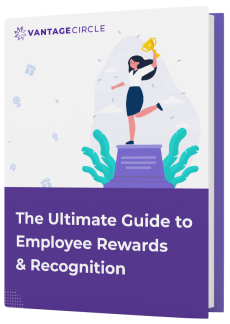Virtual Interview: A Brief Guide for Recruiters

As technological advancements, the workplace has followed suit quickly by adopting new technologies that save time and increase efficiency. In a survey conducted by the Society of Human Resource Management, 50 percent of employers said they use virtual interviews as a way to reduce their applicant pool. Software for video conferencing, such as Skype, Zoom, Google Hangouts, has helped recruiters to reach a more diverse global applicants group and provides a cost-effective way to screen prospective hires.
Virtual interviews have also become a necessary requirement because of current situations such as the pandemic COVID-19. Virtual interview has given recruiters a respite in the COVID affected hiring efforts. A lot of professionals are either working from home or remotely pursuing new job opportunities, as a result, the recruiting process has become more interactive.
What is a Virtual Interview?
A virtual interview or video interview is a job interview that utilizes video technology in order to enable remote conversations. The hiring manager and candidate will connect each other online using video conferencing software rather than meet face to face.
A video interview mostly follows the style of a traditional, in-person interview, but there are a few key objectives that need to keep in mind.
The steps you should take to prepare successfully for a virtual interview are as follows:
1. Give the Candidate Time to Prepare
Giving candidates time to prepare for the interview is crucial, rather than scheduling a meeting on the same day. Giving candidates the chance to prepare means that when you conduct the interview, they are comfortable and do thier best.
It is also a professional courtesy and reflects your professionalism and thoughtfulness in terms of the interview process.
2. Create a Standardized Rating System
You can create a standardized system where you can rate the skills of each candidate for the job. To keep a track of how each candidate performs during the interview you can use this rating system.
Use this system to determine and compare the suitability after you finished conducting the interviews.
3. Prepare Some Questions for the Interview
Prepare some interview questions that you will ask during the candidate. Review the information of the candidate, including their resume, any other documents that they have provided. Take this information to make questions that you would like to ask related to their experience and qualifications.
Make a list of job-related questions that you will ask every candidate as part of the standardized rating system.
4. Test Your Technology
Video interviews depend on your and the candidate’s internet connection. When you have a good internet connection, you can make sure that you don’t miss any part of the interview and that your video is clear. You can also secure your internet connection with a password.
Check your connection before the interview. Make sure that the camera and microphone you are using are working properly. You may also hold a practice interview with a colleague to ensure that your technology is working.
5. Send the Candidate a Video Interview Invitation via Email
Send each candidate an invitation to be prepared for the interview. The invitation should include the day and time of the interview will be held, all the information need to access the software that you will be using for the interview.
Be very clear about the virtual video interview format so that candidates can know what is expected of them. For example, if the candidate needs an access code to log in to the interview, mention that information in the email.
6. Rid Yourself of Distractions
Carry out your interviews in a quiet and distraction-free environment to give your full attention. When you want to conduct your interview from home, choose a quiet place, and tell your family members that you are going to have an interview so that they can keep quiet.
Switch of the TV, keep your cell phone in silent mode, and be ready for the interview. Although you can not prepare for all the distractions - especially if you have kids - the more you are prepared, the better you can concentrate on the interview.
7. Monitor the Body Language
Unfortunately, that firm handshake you usually greet the candidates with during a face to face interview won’t translate via video. So, express your confidence through your body language. So, sit up straight, smile, and hold the camera to maintain eye contact with the candidates.
8. Don’t Forget to Follow Up
You should consider this video interview as you would take an in-person interview and follow up with the candidates. You can send an email to the candidate thanking them for making time for the interview within 24 hours of the interview.
Related article: Common Interview Mistakes a Recruiter Makes.
7 Benefits of Virtual Interview
Conducting video interviews comes with the added benefits of lower costs, increased diversity pools, no travel times, and more. Below are the 7 benefits of a virtual interview:
1. Cost-Effective
Interview expenses cover everything from taking the candidate out to lunch on the day they come into the office to bring in the interviewees and interviewers. Video conferencing tools are more cost-effective and give a satisfactory amount of human interaction.
2. Scheduling Flexibility
This is the best practice to have the candidates to meet the entire interview panel in one day and be respectful of candidates coming on-site for interviewing – particularly if they are studying or currently have another job. When you conduct the interview virtually, the on-site interview scheduling problem can avoid automatically.
If both parties - candidates and interviewers- are at the home, then having interviews back to back is not a problem. Then, you can schedule the interview with the candidate at the normal availability of the interviewer. Breaks between the interview can add benefit to the candidate and interviewer as it allows them to take rejuvenate.
3. Modern Technology
Companies have been conducting job interviews for many decades through traditional face to face interviews. Modern technology has created a range of virtual communication software for companies to select from to stay connected with people. Since in-person interviews are not an option right now, many companies are turning to solutions for virtual recruitment to facilitate their recruitment program.
Try to use video conferencing software such as Zoom or Daily as the recruitment process is typically the first exposure candidates to get with the organization. If your company uses an outdated technology that is difficult to use or unreliable, it might send the candidate a negative message about how the company invests in tools and resources.
4. Brings Consistency to the Process
One benefit of conducting interviews virtually is that you can record the session. Sometimes, the interviewer forgets what the candidate said during the interview. Before starting the interview, tell the candidate that the interview will be recorded and gain consent. The interviewer can go through the recording of the interview to make the final decision after the interview.
5. Convenient
Interviewing virtually removes most of the administrative stress that involves the face to face interview. There is no need to book a meeting room, with no travel time for the candidates, etc to do a video interview.
6. More Inclusive
It is a natural instinct to make judgments on others when you first meet. That’s why people always say, “First impressions always last.” We often judge people by their dressing sense, hairstyle, looks based on their appearance and behavior.
If someone is nervous, we tend to relate nervousness with not being eligible even if the job doesn’t require them to be a professional public speaker. Unless you interview someone who is going to be the face of the organization or going to communicate constantly with clients and outside vendors, we should not reject anyone who gets nervous during the interview.
Another benefit of interviewing virtually is that people with disabilities can interview from their home where they feel more comfortable. A good recruiting system means that the best people are hired who meet the job requirements and have the necessary skills to be successful.
7. Eliminates In-Person Interview Stress
Interviews can be a source of anxiety for many people. The high level of anxiety can make it difficult to communicate clearly and effectively. Video interviewing removes some of the unnecessary stress like picking out the best outfit, getting stuck in traffic, or even spilling coffee on themselves during the interview.
Interviewing virtually allows candidates to interview from a comfortable environment and bring their best forward.
Conclusion
The virtual interview has become the new normal for most of the organizations. It is up to us to accept our new lives during this pandemic situation and maintain social distancing and stay at home in all aspects of our lives including business. It may feel a little difficult to conduct video interviews at first. But once you get used to these and make some adjustments, your business will move forward as usual.

Vantage Circle is a simple AI-powered Rewards & Recognition Platform for upgrading your employee experience and engagement for better productivity.





